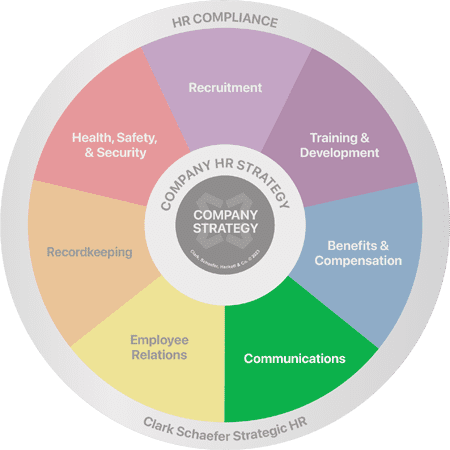Dealing With Workplace Gossip
Last Updated on January 17, 2023 / Communications
Question:
Our office struggles with workplace gossip. It tends to breed negativity between our employees and hurts our culture of teamwork. What tips do you have for dealing with employees who love to gossip and complain?
Answer:
Communication is always a good thing, right? Typically, the answer to this is a resounding, “Yes!” However, when break times become a complaint-fest or when employees gather around the water cooler to swipe the latest rumor about a coworker, it becomes unhealthy. This type of behavior needs to be addressed quickly and directly before workplace culture and feelings of teamwork erode.
But what is the difference between “chit-chat” and “gossip” and when should you get involved? Chit-chat is common, it’s the normal, “what did you do over the weekend?” or the “how’s your family?” type of conversations that hopefully lead to a feeling of community and friendship among your employees. We want everyone to feel connected to each other, and to build lasting relationships amongst their peers. We know that this encourages retention and overall happiness in the workplace. However, when “chit-chat” shifts to being about other people’s problems, their poor work ethic, their home life drama, and “why did Susie get the promotion over them?” It very quickly enters the world of workplace gossip and drama.
Marcel Schwantes describes some behaviors employees and managers can take when dealing with workplace gossip, in his article, “9 Ways to Get Rid of Workplace Gossip Immediately.” First of all, leaders can address these issues by communicating expectations to the team that talking behind someone’s back and being negative about others is not acceptable. Managers should reiterate to their employees who they should communicate with if they have a problem, question, concern, or complaint. Typically, this means beginning by voicing that issue with their direct supervisor or their HR Manager. It also may begin with sensitivity or inclusiveness training with frontline employees, so they can understand how their actions and conversations affect one another and impact their productivity and cohesiveness.
Here are some practical strategies to deal with workplace gossip:
- Communicate proactively with your team. If you are able to share information with them that will enable you to “fill in the gap” with real information instead of leaving them to speculate on their own, it can often head off workplace gossip. It will also encourage trust between you and your employees. However, there are often situations in which you can’t share information or details, and that’s ok. You need to communicate to them that you are working on a solution or looking into their concerns, but unfortunately, you are unable to share details with them at this time.
- Address the behavior with the offenders. If you overhear gossip, talk to the employees about the negative impact of workplace gossip on each other. Ask them how they would feel if someone was talking about them in the same way. Or if it is more job-related, ask them why they are upset about the situation and what role they may play in it. Ask them what they can do to help the situation. Remind them even if they do not think they have anything nice to say about someone else or nothing in common with the other person, that they both work for the same organization. As Abraham Lincoln said, “I do not like that man. I must get to know him better.”
- Be a good example. Do not participate in workplace gossip about others or overshare information about employees. It can be tempting to do this, but don’t give in! Managers are held to an even higher standard when it comes to this, and often disciplinary action can be taken against them. “Oversharing” can even lead to potential defamation of character claims, so be on your guard when sharing information about confidential employee issues, including health conditions, reasons for a termination, and other private things that may have been communicated to you in confidence.
- Exude positivity in your communications. What’s the best way to combat negativity? Being positive. Focus on what is going well in the organization and on the team first, before potentially asking for areas to improve upon. Remember, using an upbeat tone of voice when addressing your employees and coming in every morning with a “go get ‘em” attitude yourself, will eventually rub off on everyone around you.
A final consideration: The NLRA protects an employee’s right to engage in “concerted activity”, which is “when two or more employees take action for their mutual aid or protection regarding terms and conditions of employment.” Be careful when addressing potentially negative “water cooler” gossip that you are not suppressing an employee’s rights under the NLRA. You cannot discipline a non-exempt employee for discussing their pay, working environment, and other conditions of their employment with each other. However, if you overhear something like this, there is nothing wrong with talking to the employee about their concerns directly and hopefully working together on a mutually beneficial solution for the long run.
We’ve never heard employees complain that their employer communicates “too much”. Communication is the backbone of a satisfied and productive workforce. However, providing adequate communication to a diverse group of employees who may require differing forms of communication isn’t always easy. Strategic HR has years of experience creating written communication for employees. Visit our Communications page to learn how we can assist you with various communication-based projects.




